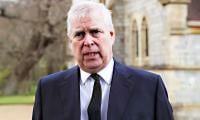Benazir courted generals in 1988, reveal CIA documents
ISLAMABAD: Declassified CIA documents reveal that before forming her government in 1988, Benazir Bhutto had told Washington that she had courted the generals, telling them that she would not touch the Army budget or challenge military policies on Afghanistan, or slow Pakistan’s nuclear programme.
Bhutto has told US diplomats she distrusts Ishaq (Ghulam Ishaq Khan) but would support his election if the Army insists, the CIA document reveals. The document also says that after 1988 elections, the then Army Chief General Aslam Beg wanted a national government with the hope that it would be a Muslim League-led government. However, he was not prepared to use his muscles to prevent Benazir Bhutto from becoming the prime minister.
Dated 22nd Nov, 1988, the document reads as: “Although neither Benazir Bhutto’s Pakistan People’s Party nor the Pakistan Muslim League-led alliance won a majority in the 16 November National Assembly election, Bhutto appears able to put together a coalition majority and Acting President Ghulam Ishaq Khan is most likely to ask her to form a government when the Assembly convenes on 5 December.
Bhutto is at least close to the 119 seats required for a majority. She can count on the 93 seats she controls, at least half of the 30 seats reserved for religious minorities and women, and 10 seats won by pro-Bhutto minor party candidates.”
US diplomatic reports suggest that “Bhutto can probably also secure the 13 seats won by the Muhajir Qaumi Movement if she is willing to make concessions to Sindh Province’s Muhajir minority.
Bhutto’s main opposition, the Pakistan Muslim League-led alliance, can count on only the 55 seats it won, plus 15 independents. The Muslim League’s poor showing will make it difficult for Ishaq to credibly argue that its candidate, who will almost certainly be Punjab Chief Minister Nawaz Sharif, could win a vote of confidence.
Army Chief of Staff Beg has suggested the parties form a national unity government. He probably is hoping through such tactics to encourage the formation of a Muslim League-led government. Beg does not, however, appear prepared to use coercion to prevent Bhutto from becoming prime minister. We believe Beg would consent to Bhutto as prime minister especially if she agrees to Ishaq continuing as president.
The generals likely believe Ishaq would counterbalance Bhutto. The Constitution gives the president, in consultation with the prime minister, the power to appoint the cabinet, provincial governors, and the judiciary while the prime minister controls legislation and the budget process.”
-
 Keith Urban, Nicole Kidman's Daughters Choose One Parent To Side With
Keith Urban, Nicole Kidman's Daughters Choose One Parent To Side With -
 Sarah Ferguson's Hidden Trait Exposed As Expert Dismantles Shadow Side To Her Personality
Sarah Ferguson's Hidden Trait Exposed As Expert Dismantles Shadow Side To Her Personality -
 Sarah Ferguson Backed By Powerful Friends Amid Epstein Fallout
Sarah Ferguson Backed By Powerful Friends Amid Epstein Fallout -
 PINK’s Latest Move Sparks Speculations About Replacing Major Celebrity On Show
PINK’s Latest Move Sparks Speculations About Replacing Major Celebrity On Show -
 Planetary Parade 2026: Here's How To See Six Planets Aligning Today
Planetary Parade 2026: Here's How To See Six Planets Aligning Today -
 Christopher Nolan Reveals Why He's A Fan Of 'Fast & Furious' Movies
Christopher Nolan Reveals Why He's A Fan Of 'Fast & Furious' Movies -
 Ben Affleck Unable To Accept A New Lover Post Jennifer Lopez Divorce As He Still Grieves End Of Bennifer 2.0
Ben Affleck Unable To Accept A New Lover Post Jennifer Lopez Divorce As He Still Grieves End Of Bennifer 2.0 -
 Why Is Demi Moore Being Called Ozempic Victim?
Why Is Demi Moore Being Called Ozempic Victim? -
 Kaley Cuoco Makes Honest Comparison Of 'Big Bang Theory' And 'Charmed' Gigs
Kaley Cuoco Makes Honest Comparison Of 'Big Bang Theory' And 'Charmed' Gigs -
 Robert Picardo Shares Surprising Reaction On Returning To The 'Star Trek' Franchise
Robert Picardo Shares Surprising Reaction On Returning To The 'Star Trek' Franchise -
 AI Feud Deepens As Musk Targets OpenAI Over Safety Concerns
AI Feud Deepens As Musk Targets OpenAI Over Safety Concerns -
 'Paranoid' Andrew Fears Assassination: 'Panic Is Spiralling'
'Paranoid' Andrew Fears Assassination: 'Panic Is Spiralling' -
 Israeli Minister Hits Back At Prince Harry
Israeli Minister Hits Back At Prince Harry -
 Thousands Of Google Accounts Could Be Misused By Hackers: Report
Thousands Of Google Accounts Could Be Misused By Hackers: Report -
 Prince Harry Ignores Question About Andrew
Prince Harry Ignores Question About Andrew -
 Ryan Gosling On What Makes 'Star Wars: Starfighter' Different From Other Franchise Films
Ryan Gosling On What Makes 'Star Wars: Starfighter' Different From Other Franchise Films



